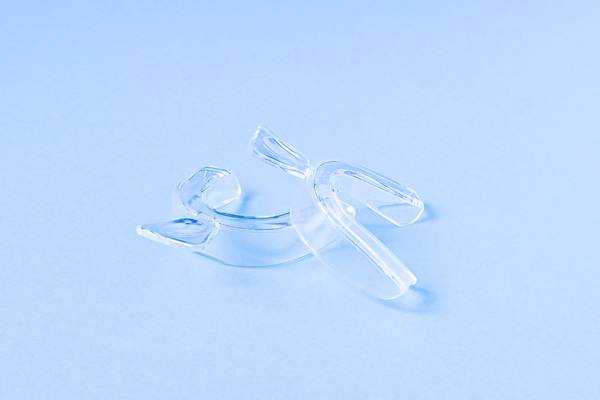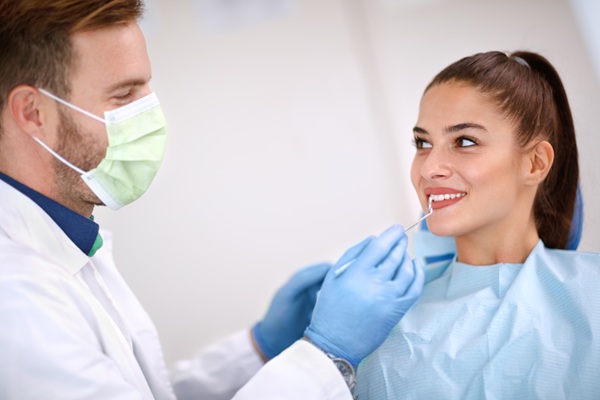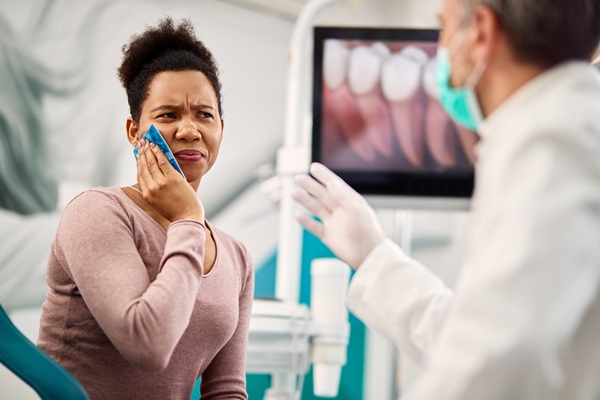Is a Mouthguard the Only Dental Treatment for Teeth Grinding?

Wearing a mouthguard is the most common way to help with teeth-grinding. This dental appliance protects teeth from developing enamel erosion. It also helps disperse the pressure to reduce dental and jaw pain. If you want to know if a mouthguard is the only teeth-grinding treatment available, here are the details.
Reductive coronoplasty
A patient with a teeth-grinding problem can resort to this treatment instead of wearing a mouthguard. Reductive coronoplasty can level or reshape the biting surfaces of teeth. This procedure could be effective if it is a result of crooked teeth, crowding, or misalignment. Some patients may need additive coronoplasty. This second procedure can build up the dental structure.
Stress-reducing techniques
In some cases, teeth-grinding can result from mental health issues. Anxiety, stress, and depression may become overwhelming to some people. Wearing a mouthguard can help protect teeth and jaw. But targeting one of the root causes can be a good treatment as well.
Yoga can reduce depression. Meditation can lower pain, depression, anxiety, and stress. Talk therapy is also an ideal way to target teeth-grinding. Speaking to a counselor, therapist, or psychiatrist can help. Regular exercise can release endorphins in the brain. These neurotransmitters can help lower stress.
Botulinum toxin
Studies show that botulinum toxin can reduce teeth-grinding frequency and pain. Discussing this with the dentist can help determine if the patient qualifies for this treatment. This can be a good option if the patient is not scared of needles. Otherwise, a mouthguard would be more acceptable.
This procedure involves injecting small amounts of the toxin into the jaw muscles. The injections cannot cure teeth-grinding. It can only relax the muscle. This treatment may relieve teeth-grinding and the headaches from it. The relief from the injections can last for three to four months.
Jaw muscle and tongue exercises
These exercises can be a good alternative to wearing a mouthguard. They can help relax the facial and jaw muscles. The repetitive motions can also maintain the proper jaw alignment. The patient can do these exercises at work or at home with the watchful eye of a physical therapist. Wearing the mouthguard after the exercises is also an option.
Stretching exercises can loosen the jaw muscles. Gentle jaw massage also has the same effect. Applying hot packs can widen the blood vessels in the jaw area. This has a relaxing effect. It can prevent the jaw from clenching, especially at night.
Biofeedback
This technique helps the individual become aware of the behavior. In doing so, the patient can learn to stop this behavior. This can be effective in stopping awake and sleep teeth-grinding. The patient can wear a mouthguard while going through this treatment. Biofeedback can teach the patient how to control the jaw muscles. Wearing a mouthguard during the treatment can help protect the teeth and jaw.
Other helpful treatments for teeth-grinding are available aside from wearing a mouthguard
Teeth-grinding happens in many people. Treating it in its early stages is vital in preventing serious complications. Available treatments can help target the root causes of teeth-grinding. Wearing a mouthguard can support them by protecting the teeth as you go through these alternative therapies.
Are you considering getting a mouthguard in the Fontana area? Get more information at https://gurzfamilydental.com.
Check out what others are saying about our dental services on Yelp: Mouth Guards in Fontana, CA.
Recent Posts
While mouth guards are something that you can purchase for yourself for use in sports or other activities, higher quality or customized options are occasionally recommended by your dentist for use in preventative care against tooth damage. There are a few different types of mouth guards that a dentist may suggest you use if you…
Preventive dentistry aims to keep the mouth healthy by preventing problems rather than waiting to fill a cavity when the patient feels pain or only addressing enamel erosion after teeth become sensitive. These services may include a deep cleaning of the teeth and other treatments that can only be performed by a licensed dentist.Many patients…
Dentists have long recognized an oral health connection to overall health. The body’s systems are interrelated and affect one another. Long-term dental problems impact the immune system and other metabolic functions. It is the view of the American Dental Association that infections often enter the body through the mouth.A long-term infection in the gum taxes…
Have you recently chipped a tooth? Read on to learn what to do after chipping a tooth. Several factors may lead to a chipped tooth, including decay and, more often, impact. This may be caused by physical activity, auto accidents, or even consuming hard foods. Even with healthy teeth, chips are occasionally inevitable. If you…


